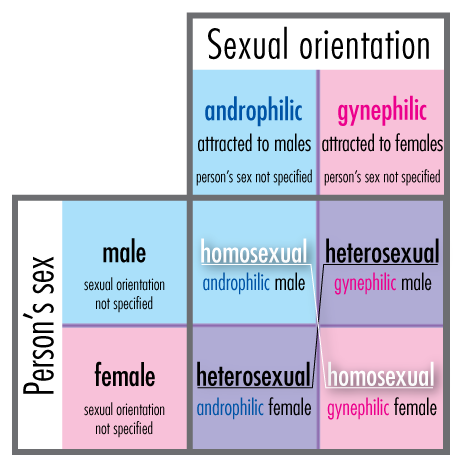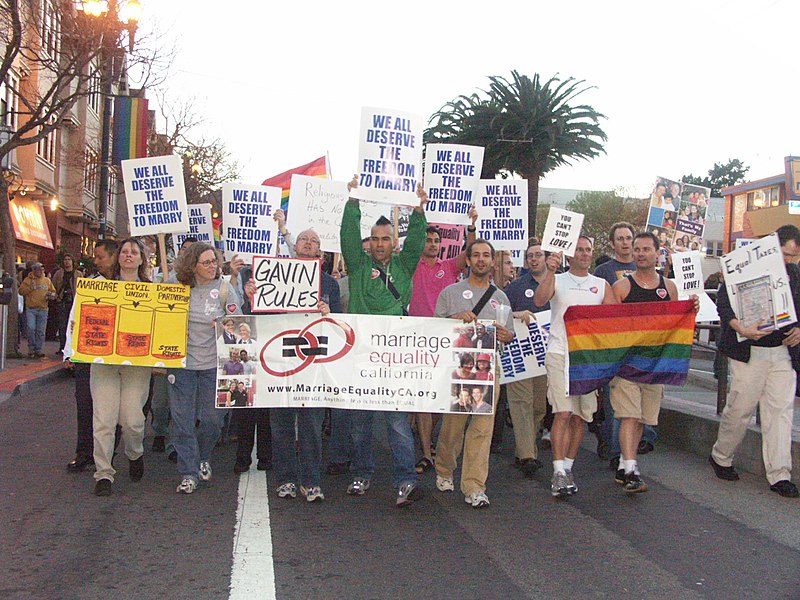Posted: Apr 23, 2012 5:43 am

Someone is changing his stand-still “chess” strategy in this formal debate.
But he only announces this in the very last sentence of a 1300 word post.

“… For this reason, my future posts will include more positive arguments for gay marriage…”
Positive arguments.
…and THEN Lion IRC will offer rebuttals in reply.
Topic - Gay Marriage Should NOT Be Legalized in Society
I have three substantive posts (4,500 words) to make in this debate.
So it shouldn’t be surprising that the concept of matrimonial law, as a pre-existing social institution, be explored in detail as a prelude to the specific consideration of one single (allegedly) unique “type” of marriage and the supposed “entitlement” claims of its proponents.
Furthermore, it must surely be acknowledged that when society judges (discriminates) between contesting
claimants, all seeking to amend and vary in some way, the pre-existing definition of marriage…
Eg. Lower the age, lower the no-fault divorce threshold, allow incestuous marriage, allow polygamous marriage, allow inter-species marriage, allow same-sex marriage, allow pre-arranged marriages of financial convenience, etc.
…then one of society’s self-interest considerations will be the reasoning or lack thereof, to allow one “type” and not another.
When supporters of gay marriage malign the word “discriminate” and use it as if it were a pejorative,
one wonders if they forget its primary definition.
dis•crim•i•nate v.
1. a. To make a clear distinction; distinguish: discriminate among the options available.
1. b. To make sensible decisions; judge wisely.
dis•crim•i•nate v.tr.
1. To perceive the distinguishing features of; recognize as distinct: discriminate right from wrong.
Some in the peanut gallery audience seem surprised that I didn’t come out with any “STOP THE GAYS NOW!” placards, guns blazing, firing off a barrage of anti-homosexuality points in my first post.
Tough! This debate is too important to get lost in the mire of persecution complexes and straw argument agenda-whoring - an off-topic, paranoid and ignorant polemic divide.
…you’re a homophobe, am not, are too, am not…
Besides, we haven’t even gotten to the part of the debate where we must try to define ideas like tri-gender, androgyne, intersexuality, third gender, third sex, fourth gender, androphilia, eunuch, transsexual, pangender, trigenderism etc. (And whether any of these qualify as personality disorders rather than the sort of orientation or self-expression which people “born that way” might claim demands equal tolerance from society.

It's not a… “them and us”, gay versus straight dichotomy.
And those who say the law discriminates against “gay people” can’t even objectively (or legally) explain where exactly on the spectrum of psycho-sexual preference/behavior, the word heterosexual ceases to apply and the word “gay” commences.

This debate is about the definition of a foundational institution in society – marriage - and the critical importance of
“The Law,” in how that institution is upheld, interpreted and/or changed.
Note the reference here in which legal observers point out a US District Court Judge’s statement of the bleeding obvious that...
"...same-sex marriage will not exist in this state unless and until the Minnesota Supreme Court overrules its own decision…”
Let’s continue with the theme of legal turmoil (and therefore social instability) which certainly resulted from prior changes to matrimonial law in the 60’s and 70’s, and the potential now, for even greater legal complexity arising from gender and sexual preference issues if “gay marriage” is legalised.
Note – At no point have I complained about the legal profession making a living. Nor have I any issue with party politics. The Law and Government are necessary social institutions that I would also defend. In fact, my opening post clearly emphasizes the necessity and magisterial superiority of The Law – its imprimatur.
To summarize my arguments thus far;
A) Changes to matrimonial law can and do affect social pathologies negatively and unexpectedly.
B) Increased legal complexity opens the door to increased litigation.
C) Legislators of change in marriage law (reacting, for example, to short-term 1970’s zeitgeist and working within short term political/electoral cycles) seldom foresee all the consequences of what might “seem like a good idea at the time”
D) Increased litigation arising from contested [url=“ought questions” in society, plainly invites the legal profession to argue and consider matters for judgment on the basis of their own personal opinions and subjective bias. An activist judge is ENTITLED to exercise a prerogative where ambiguity in the law permits and/or where opposing counsel isn’t sufficiently vigorous in their respective ACTIVISM. Some lawyers are sufficiently motivated (for various reasons) that they are sometimes willing to work for free. Don’t tell me that’s not activism.
E) Litigants themselves are primary activists in the legal process as well and homosexual marriage is not the only thing on the agenda. Changing heterosexual marriage law might be a cause célèbre for gay people whether prominent in the media or otherwise, but only the grossest hypocrite among them could deny that they are the only ones wanting to change matrimonial law.
Gay marriage activists, almost without waiting for the sentence to finish, screech on cue – “Slippery Slope Fallacy”
…oh don’t be ridiculous, that will never happen…everyone knows marriage is only between two people...everyone agrees you have to be over 14 years old to do THAT….”
My argument isn’t a slippery slope fallacy in logic. Here’s why.
To be such, it would have to suggest that;
“A” (change the marriage law),
…leading to
“B” (same-sex marriage)
…leads to
“C” (a specific thing which is arguably/morally undesirable.)
But “C” has not even been introduced into the argument yet.
Nor have I presupposed the grounds on which a hypothetical “C” is morally objectionable.
It might well be a perfectly "moral" thing to change the marriage laws and allow 13 year old girls to get married.
This legal change would certainly "tick all the boxes"

1. It’s a biological fact that some people can give birth at ages well below the statutory minimum. Born that way.
2. These are a statistical minority legally discriminated against.
3. An appeal to natural justice (if they can do it why can’t we?)
4. NOYB. (None of your business who I marry or why.)
And there’s plenty of lawyers willing to build their careers on ground-breaking legal cases which set precedents and facilitate judicial activism.

It isn’t what’s at the end of a slippery slope if marriage laws are legislatively widened or judicially re-interpreted that should concern us most.
It’s the fact that the slope itself really does exist.
Quite apart from what might be at the end, are we making it, with our legal tinkering, steeper, faster, shorter, more slippery than it already is?
Philosophical considerations.
Crocodile Gandhi says “…I have yet to come across a worthwhile argument against gay marriage.”
Logically, how then can he “demonstrate that all of the arguments made against it are insufficient…” if by his own acknowledgement he hasn't come across all of them?
As Adam Kolasinski quite rightly points out in The Secular Case Against Gay Marriage
“...The burden of proof, therefore, is on the advocates of gay marriage to show what state interest these marriages serve...”
(I think he was talking to you Crocodile Gandhi!)
One of the first philosophical hurdles when “they” talk about “their” rights to gay marriage is the question...
who are “they”?
What is “gay”? Is this a discrete, clearly identifiable group?
No. it is not.
ORIENTATION

A person can assert their own preference for homosexual behaviour at anytime they like. All people? No. But that merely enforces my point still further.
Philosophically, the very existence of the word bisexual logically demonstrates that a person can have a homosexual orientation on Monday and a heterosexual orientation on Friday.
…oh come on Lion IRC, that’s not how bisexuals (they/them) think!
Really?
NOW who is stereotypically presuming to tell others how individual sexuality MUST be defined.
In formal logic, if a person can “discover” they are gay, the inference is [b]that same person might well later “discover” that they were not. [/b]
It’s perfectly understandable that a person might “discover” a previously unknown preference for homosexual behaviour
later in life...after having a heterosexual relationship, having intercourse, having children, getting divorced and then....
__Birdcage(2).jpg)
When a Judge asserts that there’s no evidence that an individual can change his or her sexual orientation through conscious decision, therapeutic intervention or any other method,. (See FF 46)
I ask, really?
The opponents of gender stereotyping /gender conditioning of young people argue that you CAN certainly imprint gender bias on a tabula rasa.
Sexual preference logically connotes voluntarily electing ones orientation.
The person who is voluntarily abstinent also exercises a sexual preference.
Rape trauma/sexual abuse victims frequently find they have a gender-based aversions which manifest as homosexual behaviour. In some cases, especially with young people, a cycle of repetition can develop in which they repeat the initial abnormal sexual behaviour or sexual violence themselves.
(See rape trauma pathology for more detail than can be covered here.)
And then there’s this….

Chris Birch suffered a stroke and awoke to discover he's gay. Picture: BBC Source:
The vast spectrum of sexual behaviour, orientation and proclivity has no clear line where "choice" stops and “born that way” compulsion begins.

This undermines the philosophical case for specifically "GAY" marriage.